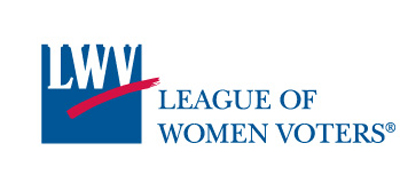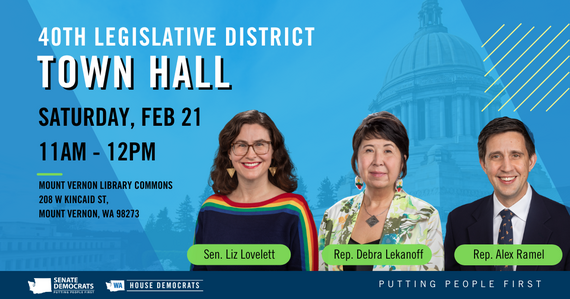by Lin McNulty
A group of 25-30 like-minded seniors met at a Town Hall on Thursday, Oct. 24, to discuss and exchange ideas for a shared vision of “Aging in Place.”
Recent Community Conversations have revealed concerns regarding senior issues such as housing, assistance, medical care. It was in response to these conversations that Senior Services Coordinator Marla Johns, the Senior Center Advisory Committee, and Councilmember Rick Hughes organized this Town Hall meeting.
Stephen Bentley, Chair of the Senior Center Advisory Committee, and County Community Services Manager Joyce Rupp, pointed out that San Juan County has the second oldest median age of any county in the state— just under 60. In addition, 45 percent of the county population is over the age of 65, and the fastest-growing population segment is over 80 years of age.
Rupp further stated that, with inflation, funding for additional senior services is decreasing, even with the 2009 levy lid lift that funds Senior and other social services until 2015, when voters will decide whether to continue, increase, or drop the services paid for by the levy.
Bentley, Chair of the Senior Center Advisory Committee stressed “It is the goal of the advisory committee to help seniors to stay in their homes for as long as they want.” Staying in one’s home for as long as one wants, however, may mean providing for assistance and services that should be established before the need arises.
Five specific concerns were addressed:
- Housing
- Nutrition
- Caregiving
- Transportation
- Funding
Housing: There is nothing on the island that resembles “assisted living.” The Longhouse on Prune Alley comes closest, providing low-cost senior housing with 16 units. All units are currently occupied and all residents live independently.
It was suggested that a collaboration with OPAL may provide for additional senior housing units. There are an estimated 140-175 residents on Orcas who experience loss of mobility and/or require assistance to supervise medications, prepare meals, and bathe. These islanders would be candidates for “assisted living.”
Protective covenants and/or regulations prevent apartments in homes for caregivers. Seniors who are able to remain in their homes find that the home may no longer accommodate “Aging in Place.” Negotiating stairs, routine chores, repairs, even changing a light bulb can become obstacles.
Nutrition: There is a significant shortfall in funding for nutrition programs. Incorporating the Farm to Cafeteria program into the Senior Center meals programs and working with the new new Food Co-op were suggested as possible solutions.
Caregiving: There are differing levels of “professional” home caregivers on the island: those who are hired as independent contractors, and those who are trained and certified. Caregivers not licensed are not eligible for Medicare or Medicaid reimbursement.
Certification training is needed to get locals on the ledgers in order to be billable to insurance companies. At this time, there is no agency willing to come to Orcas to provide that week-long training, and it is cost-prohibitive for caregivers to travel to the mainland and lose a potential week’s pay.
Licensed agencies need a minimum number of eligible people in an area before insurance will authorize care. So people who are forced to move off-island decrease the number of people who need help. These agencies need to know how many referrals before they will commit to covering Orcas.
Transportation: There are no established services for transport to physical therapy, or medical appointments, or grocery shopping, or socialization enrichment opportunities on the island.
Funding: Rick Hughes suggested county government funding through the establishment of a tax district for Senior Services. A levy, such as the 2009 social services levy, would need to be county wide, but a Senior Taxing District on Orcas could be started at the Council level and then brought before the voters; Hughes indicated a willingness to pursue this option.
County Community Services Manager Joyce Rupp reminded attendees that the Senior Center is one of only two in the state which are not county run. Orcas Senior Center is owned by a non-profit corporation and the building was built primarily with donations. There were originally 2.5 full-time staff members; now there is only one—Marla Johns, who also volunteers her time outside of the Center’s director position, serving as a caseworker,
One audience member mentioned the Beacon Hill Project in Boston, a member-driven organization for Boston residents 50 and over, which provides programs and services so members can lead vibrant, active and healthy lives, while living in their own homes and neighborhoods. Benefits include access to discounted providers who can help members manage their households, stay active and healthy, and serve their driving needs. This project has been adopted in many communities across the country.
Rupp suggested consideration of an assisted living establishment “without walls;” with cooks, aides, or repair people to be deployed where needed. A groundskeeper, for instance, could mow 18 lawns a week rather than just one “facility” lawn.
“This matter is being taken seriously,” said Hughes. Ongoing coordination and conversations with Senior Services, Orcas CARES, and other groups will determine the next step.
Marla Johns wants to find new ways to say “yes.”
**If you are reading theOrcasonian for free, thank your fellow islanders. If you would like to support theOrcasonian CLICK HERE to set your modestly-priced, voluntary subscription. Otherwise, no worries; we’re happy to share with you.**








Thank you, Lin for such a good synopsis of the meeting, especially for those who couldn’t make it.
“Community” is an important word around here. When seniors can no longer drive, do yard work, or invite their neighbors in for coffee, I feel strongly that a centralized assisted living property with, perhaps more than one building should be considered, where all services can be in one place. If elders are living alone, although visited by the yard-keeper, the nutritionist, and the visiting nurse, they will still be isolated from real social encounters.
It’s not too early to plan now for a senior assisted living complex. There are still some wonderful parcels of land close to Eastsound that could fill the bill.
“The time has come, the walrus said…..”
on Lopez, there is The Hamlet – which was envisioned as a solution for Aging in Place. There are 12 cottages for independent living and an adult family home with 6 private rooms. Some units are subsidized. Check it out. It was created as a non-profit and with mostly private funds, I believe.
I hope seniors and planners on Orcas will come to Lopez for our model of Aging in Place, the LoHo senior housing right in the center of Lopez Village. It includes one and two bedroom apartments and an assisted living facility, the Hamlet House; along with a resident’s meeting place, gallery, exercise room, and more– all adjacent to the village market, clinic, pharmacy and stores. Please contact the office for a tour or background information: 468-3800.
Thank you Lin, and Rick and all those involved in exploring this important issue.
Adult children are wondering how we can look after aging parents and we’ll be there ourselves soon and we should have options.
I like the idea of a tax to sustain services we all will need.
As chance would have it, there is a five acre parcel, across the street from the Medical Center and just to the east of OPAL’s Wild Rose Meadow, I have always considered it an ideal size and location for our community’s first assisted living center. Should a group coalesce around the creation of one, I would be delighted to participate.